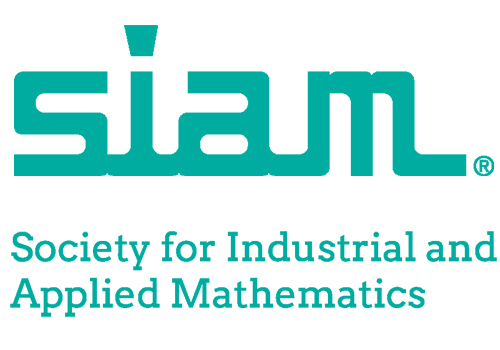A Ph.D. student is required to a attain a minimum of 72 acceptable credits, with at least 36 of these earned in residence. At least 42 credits must be in formal courses (not research); 18 of the 42 must be in the core courses. In addition, at least 36 must be at the 5000-6000 level, excluding Math 5900, 5910, 5920, 5990 and 6990. There is also a 1 credit seminar requirement which is satisfied by taking both Math 5910 and Math 5920.
Included in the 42 credits of formal courses is a 6 credit cognate study requirement. A cognate course is defined to be a course which is (i) acceptable for graduate credit, (ii) taught in another department (a course cross-listed with Mathematics can count toward the cognate requirement if taught by a faculty member whose primary appointment is not in the Mathematics department, or if approved by the Graduate Committee), and (iii) relevant to the major. The course work for the cognate study requirement must be approved by the student’s Academic Plan (AP) committee. Students are encouraged to consider a minor in another department to meet the cognate study requirement. The student is also required to take at least 3 credits of Math 6990 (Research in Mathematics).
In addition to the course work, the Ph.D. student must pass four written qualifying examinations, pass an oral preliminary examination, prepare a dissertation, and pass an oral final examination which is usually limited to the defense of the dissertation. These requirements are described in subsequent sections. A grade of B or better must be earned in each core course, and a grade of C or better in all other courses of the Academic Plan (AP). The student must maintain a cumulative grade point average of at least 3.33 in graduate level mathematics courses and of at least 3.0 in all course work, exclusive of research credit.
Core course requirements
The core course requirements for the Ph.D. in Applied Mathematics are:
- At least 6 core courses.
- At least 3 core courses must be in Applied Mathematics or Numerical Analysis.
- The core courses must include Math 5190 and Math 5610.
Core Courses (for more details see Course Catalog):
- Applied Mathematics:
- Math 5190: Methods of Applied Mathematics I
- Math 5200: Methods of Applied Mathematics II
- Math 5650: Continuous Optimization
- Numerical Analysis:
- Math 5610: Numerical Analysis I
- Math 5620: Numerical Analysis II
- Math 5170: Finite Difference Methods
- Algebra:
- Math 5040: Abstract Algebra I
- Math 5050: Abstract Algebra II
- Math 5100: Linear Algebra
- Analysis:
- Math 5150: Real Analysis I
- Math 5160: Real Analysis II
- Math 5110: Complex Analysis
- Discrete Mathematics:
- Math 6070: Graph Theory
- Math 6060: Enumerative Combinatorics
- Math 5660: Discrete Optimization
A grade of B or better must be earned in each core course used to satisfy the requirements in this section. A deficiency may be made up any one of the following methods:
- Retaking the course for credit and earning a B or better.
- Retaking the final examination of the course and earning a B or better (permission of the instructor giving the final is required).
- A pass on the associated qualifying examination, if such examination exists. Students are strongly encouraged to consult their advisor prior to deciding which core courses to take, since certain core course combinations may not be suitable for certain areas of research.
Qualifying examinations
A Ph.D. student in the Mathematics Program must pass four written Qualifying Examinations, including:
- at least two in Applied Mathematics and/or Numerical Analysis, and
- at least two in one area.
The 10 qualifying examinations are (listed as examination name, associated course #, area):
- Applied Mathematics I, Math 5190, Applied Mathematics
- Applied Mathematics II, Math 5200, Applied Mathematics
- Numerical Analysis, Math 5610, Numerical Analysis
- Numerical Linear Algebra, Math 5620, Numerical Analysis
- Abstract Algebra, Math 5040, Algebra
- Linear Algebra, Math 5100, Algebra
- Real Analysis, Math 5150, Analysis
- Complex Analysis, Math 5110, Analysis
- Graph Theory, Math 6070, Discrete Mathematics
- Enumerative Combinatorics, Math 6060, Discrete Mathematics
A student granted full admission to the Ph.D. program is expected to pass four qualifying examinations (subject to the rules above) within the first two calendar years in the program.
Oral preliminary exam
The oral preliminary examination of a Ph.D. student tests a student’s knowledge of the major, minor and supporting fields of their research area. The examination is taken after a student has passed four written qualifying examinations, satisfied the graduate English requirement (if required), formed a Academic Plan (AP) committee, and has an approved Academic Plan (AP) form.
Final oral examination
The final examination of a Ph.D. candidate is oral, and is usually limited to a defense of the dissertation.
Graduate English requirements
Graduate students whose native language is not English must meet the Graduate College English Requirement.
Teaching requirement
Each Ph.D. student is required to have one year of supervised teaching. However, if approved by the student’s Academic Plan (AP) committee, equivalent supervised experience in oral mathematics communication may be substituted for teaching. In that case the Academic Plan (AP) committee must specify in writing what the equivalent experience will be.

 SIAM-ISU is the
SIAM-ISU is the